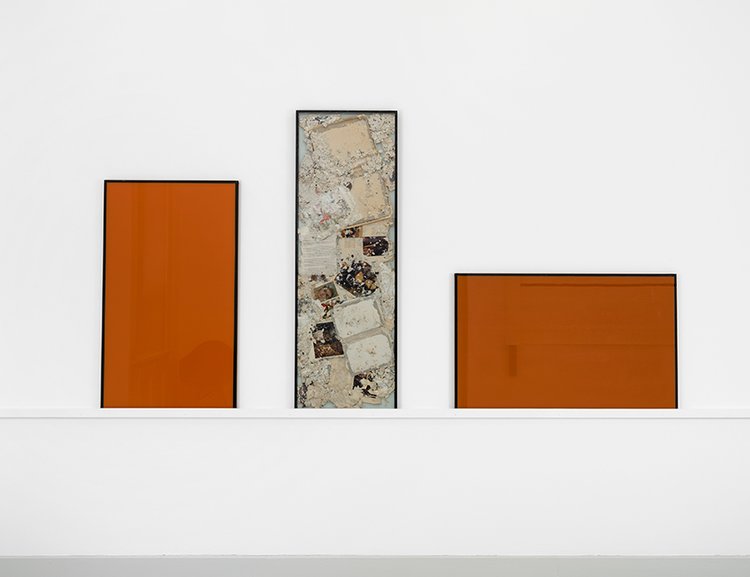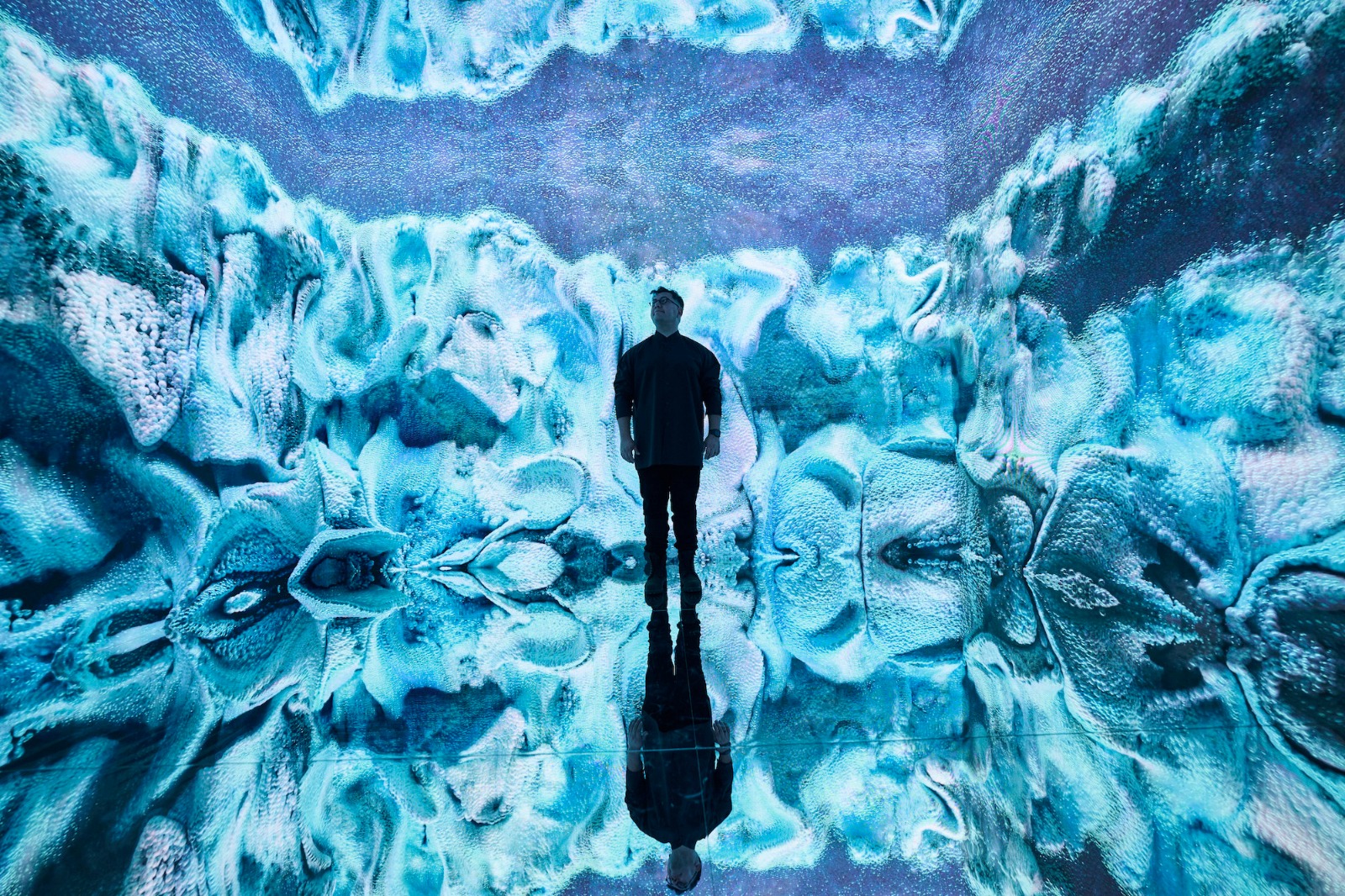With the help of a massive media hype, over the past year AI has taken center stage, arousing as much enthusiasm as fears. Both the enthusiasm and the fears have been skillfully fueled and driven by the AI’s makers, who on various occasions have intervened publicly to remark on the inevitability of its acceleration, the impossibility of controlling and harnessing its development, the impenetrability of its algorithms, the imminence of its evolution into a fully self-aware intelligence, and the risk that it may lead to the extinction of humankind. Are we to believe these monsters? Or rather, should we consider them a functional weapon of mass distraction to divert our gaze from the far more concrete and real limitations and risks of the current form of AI?
IDLE (acts α and β), 2023. video 4K, 25 min, sound. With the support of the CNAP (FR) and the Fonds Culturel National (LU). Courtesy the artists and 22,48 m2, Paris
Through a selection of works by Italian and international artists, Per Speculum. Intelligence and its Double counters these apocalyptic visions with a reflection on artificial intelligence as a mirror of humanity, an existential technology that brings us to focus on our own identity and limitations, to reflect on what defines intelligence and consciousness, to question our own anthropocentrism and peer into our own destiny.
The exhibition’s title refers both to the mirror in the First Letter to the Corinthians, in which St. Paul notes the need for an indirect, mediated view of the enigma; and to the mirror traversed by Alice in Lewis Carroll‘s Through the Looking-Glass (1871), landing in an upside-down, allegorical world.

A Rose by Any Other Name, 2021. Animated 3D model, dimensions variable.
Courtesy the artist
The general mood of the exhibition is as well set by the angelic polyphonies and saturated colors of IDLE (acts α and β), by French duo Émilie Brout & Maxime Marion, a speculative science fiction work that imagines the emotionality and anxieties of a group of artificial intelligences that have achieved self-awareness. Speculative reflection on a post-anthropocentric future is shared, in different interpretations, by Caroline Delieutraz‘s sculptural works, Kamilia Kard‘s interactive software, and Anna Ridler‘s floral animations, which insert the nature factor into the binary loop between human and technology, identifying hybridization and ambiguity as possible avenues for co-evolution. On the other hand, Lorem and Jon Rafman‘s works focus on the relationship between the human and technological unconscious: not trivially extolling a supposed “surrealism” of the machine, but exploring how dreams and personal obsessions interfere with the emerging collective unconscious educated on big data.
But if the mirror opens glimpses of vision into other possible worlds, it also offers us the chance to peer into our own eyes and critically interrogate the present: this is what the video works of Jonas Lund, Silvia Dal Dosso, Daniel Felstead & Jenn Leung, and Sanela Jahić do in the exhibition, investigating the current form of artificial intelligence and bringing to light the ideologies that nurture it and the repercussions it has on the way we think about work and experience the relationship between true and false. Far from celebrating artificial intelligence as a new artistic medium, Per Speculum. Intelligence and Its Double brings together works that critique the role taken by AI in our present, and that suggest rethinking strategies for its, and our, future.

No to AI, Yes to a Non-fascist Apparatus, 2023. Video, 10:41, sound.
Courtesy the artist and Aksioma – Institute for Contemporary Art, Ljubljana
For more inforamtion, please visit https://fondazionespaziovitale.it/.








